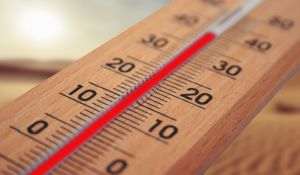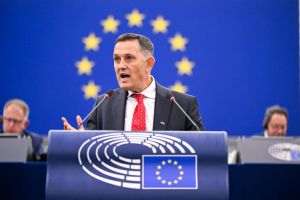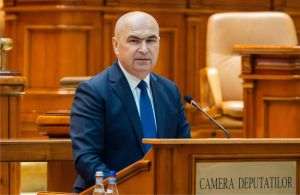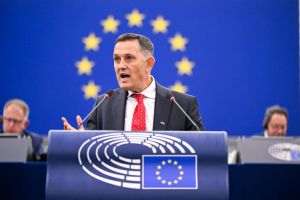"The national unitary State is a rather old-fashioned and non-functional concept, and Romania is anyway, if not a failed State, a very weak one, unable to solve most of the problems cited by the communities or citizens it claims to represent. From organizing the economic development to street maintenance, from decent social services to the security of persons and assets, from justice and administration to politics, everything is a non-declared failure, with consequences yet unknown. In spite of waiting for the dramatic end, one reasonable solution for the so-called Romanian State would be to give up the administration prerogatives to communities able (and eager) to do something for their autonomous welfare and development. Since such communities are strongly inspired by the most advanced European patterns and solutions, their endowment shall include a Parliament, a Government, their own Police and Justice, and the official language should be the native language of the respective community."
Maybe these phrases shall not be included as such within the document issued by UDMR leaders in order to support their law draft concerning the establishment of autonomous regions in Romania, but its content will definitely be there. Possible confusions and exaggerations will be claimed to come from inadequate translation and the fact that Romanians do not speak the Magyar language.
There is nothing new within the project targeting the autonomy of the "Magyar land", and in situ this is an accomplished reality. All along their political way, UDMR leaders were inspired by clear ideas and precise finalities. According to them, the Magyar community in Romania cannot be satisfied with the statute of "minority", which they consider degrading. Consequently, all approaches performed by consecutive Romanian Governments - although welcomed - will never resolve the Magyar problem in Romania. The political position of the UDMR is based on a strong idea: that the Magyar people in Romania holds the inherent right to establish a State on the land that is its own and which, through a huge political mistake and an unforgivable historical injustice, are currently part of a State called Romania. This mistake and the associated injustice must be remedied. This is the unique aim of the establishment and functioning of the UDMR as a political organization - never fully legal - within the political and institutional system of Romania.
While the ideas and political ends of the UDMR are clear, the approaches of other political parties interacting with this organization (associated to governance for the last two mandates) were confused and non-productive. The attitude of political parties (except for the PUNR and the PRM) was based on the premise that representatives of the Magyar community have two kinds of requests: the acceptable ones and the extremist ones. The latter were used exclusively within the inner struggle for power, for personal interests or in order to gather money and support from Hungary or other Magyar communities worldwide. Consequently, the "extremist part" of the UDMR is seen as a kind of embarrassing appendix, but controllable however. The best way to impede the rise of extremist thesis and personalities - considered the Romanian politicians - is to associate with the moderate part of the UDMR (which firmly holds the management of the organization) to governance. This approach was strongly encouraged by international partners of Romania and by international organizations dealing with the matter, from the Council of Europe to the NATO and EU. On this basis, UDMR claims special merits concerning Romania's "European-ization" process, declaring that Romania would still knock at the door of these institutions without the support of its leaders. This might be true!
Considering itself extremely astute, the Romanian political class refused to fight openly against (from 1990 until now) the very substance of UDMR's ideas and political actions. Consequently, it lacks adequate answers and is always surprised by any new UDMR move, the same way our Mayors and prefects are each year taken by surprise by the winter and the snow. This is completely ridiculous: instead of a political reaction, our authorities expect the secret services to solve the problem. The intelligence apparatus should make this problem clear!
It certainly won't do it, because there is nothing to clarify and no way to do so. Everything is clear, known and said. Only one thing is missing: a coherent political position, not versus the UDMR, but versus its ideology and its political program (and which, from time to time, the UDMR denies or "nuances").
There is a short way from this point to the "Federative Republic of Carpatia", a country made of autonomous regions belonging to Magyars, Banatans, Moldovans, Transylvanians, Oltenians and possibly Gypsies. In fact, the "moderate" Marko Bela said it clearly a few days ago, probably upset for our lack of quick understanding: if we won't pay respect to the rights of the Magyar community, this community is ready for the Yugoslavian scenario! With weapons, desperate resistance, refugees and everything else, probably - especially if a Milosevic-type politician might come to rule Romania.









































